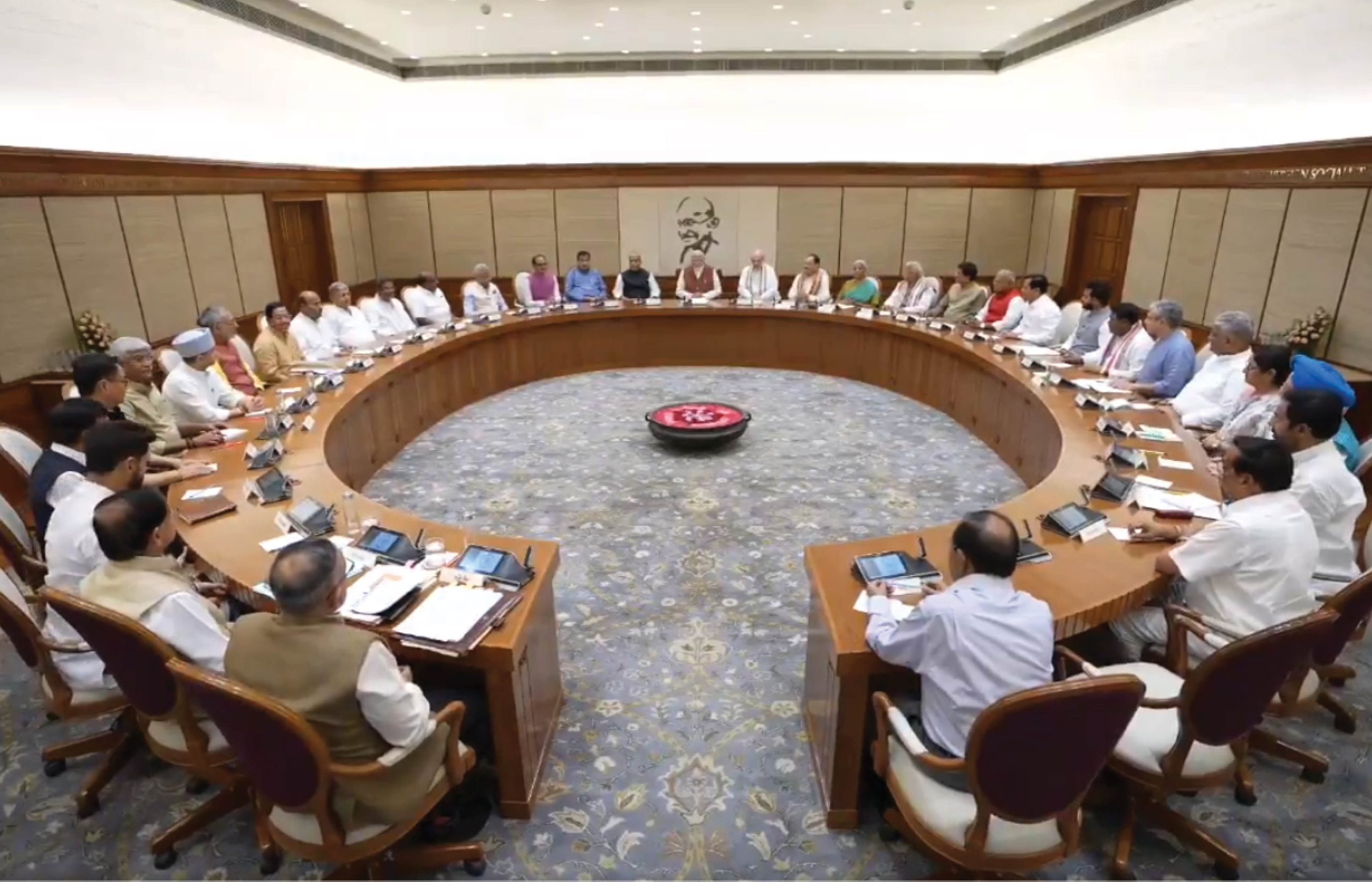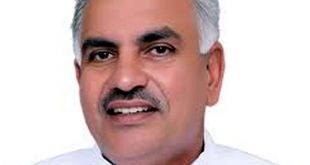
PM Narendra Modi Cabinet : Narendra Modi has assumed the post of Prime Minister for the third consecutive time in the country. After forming the government under the leadership of the National Democratic Alliance (NDA), he has made it clear to the alliance partners that alliance is necessary for the BJP, but not mandatory. In the Lok Sabha elections-2024, BJP has won 240 seats, while the NDA under its leadership has won 293 seats. BJP formed the government at the Center on its own by winning 282 seats in the 2014 elections and 303 seats in 2019, however this time the math has changed. BJP formed the government with the help of its NDA allies by winning 240 seats, just short of the magic figure of 272. So now the discussion is how will the shine of Modi 3.0 coalition government be? How will the work be done in Modi 3.0? What is the message of the distribution of ministries in the Modi cabinet? So let us know the answer to all these questions…
1…BJP's allies will not bow down
After the election results, N. Chandrababu Naidu's Telugu Desam Party (TDP) has emerged as the kingmaker by winning 16 seats and Nitish Kumar's Janata Dal United (JDU) has emerged as the kingmaker by winning 12 seats and both these parties have defeated the BJP. Both the parties were demanding arbitrary ministries. Naidu's party wanted road transport, while Nitish's party wanted railways. However, this did not happen. BJP has kept all these ministries with itself.
As a part of strategy, BJP does not want to slow down the pace of development in the field of railway and road transport. Apart from this, BJP has also given a message that by keeping these departments with itself, BJP will not bow down to its allies. BJP has given a kind of message to the allies that we will follow the coalition dharma, but will not walk with our heads bowed. Let us tell you that the condition of railways has been bad since the railway ministry was given to the allies in every coalition government.
2…Modi 2.0 government will continue to work
By reassigning the responsibility of Railways, Road Transport, Education and Law Ministries to the old ministers, Prime Minister Narendra Modi has given a clear message that the reform work started in these ministries will neither stop nor slow down. Whether Dharmendra Pradhan has been made the Education Minister again in the Modi cabinet or Arjun Ram Meghwal has been made the Law Minister again… this is a clear indication that the work of Modi 2.0 will continue in the Modi 3.0 government and its development will never be allowed to stop. The new education policy in the country is to be implemented in the year 2024 itself. While the three new laws passed in the previous government are also to be implemented from July 1. In such a situation, if the responsibility of these ministries is handed over to another minister, then there may be a problem in the time limit for implementing new laws and education.
3…Trust in old faces
The color of the image of BJP and Prime Minister Modi is changing. After the year 2014, this was also seen when Prime Minister Modi's government was formed in 2019. In 2014, Rajnath Singh, who was the Home Minister, and Nirmala Sitharaman, who was the Defense Minister, were given the responsibility of the Finance Ministry. When Amit Shah was included in the cabinet and given the responsibility of the Home Ministry. In 2024, it was believed that the Prime Minister could change the departments of the old ministers, but this did not happen. The government has retained the old ministers in many departments including Finance, Defense and Home Ministry.
4…Alliance is necessary but not by force
After the election results, JDU and TDP were pressuring BJP to get arbitrary divisions. Both parties wanted ministries related to the Cabinet Committee on Security (CCS). However, BJP did not give any of them any ministry. BJP kept not only CCS but also important ministries like Railways, Agriculture, Road Transport, Education and Law with itself. By not giving arbitrary ministries to kingmaker TDP-JDU, BJP has given the message that alliance is necessary for them, but not mandatory.
5.. not dependent on allies for policy decisions
The fact that the BJP has kept important ministries like Agriculture, Education, Law, Railways and Road Transport with itself apart from the ministries related to CCS is also important. Schemes like Kisan Samman Nidhi are run by the Ministry of Agriculture, while the work developed in the Ministry of Road Transport and Railways has a direct impact on the people and their impact is also seen in the elections. Many policy decisions have been taken regarding these two departments in the Modi 2.0 government. By dividing the ministries, the government has also given a kind of message that it will not depend on allies in areas where policy decisions are needed.
 look news india
look news india
